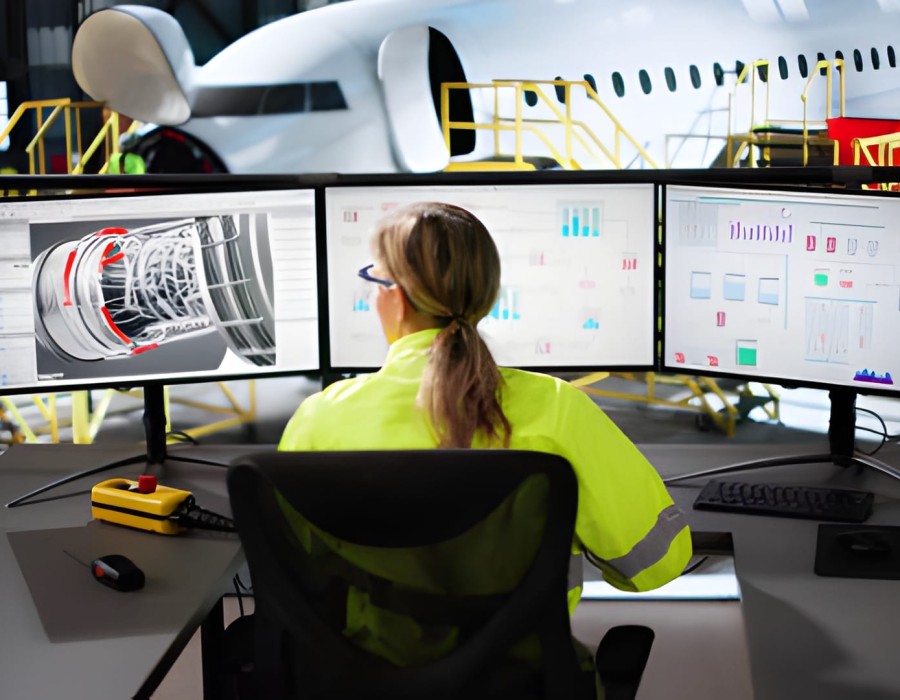In today’s world of high-precision manufacturing, Swiss CNC machines have become a game-changer. These machines are known for their exceptional accuracy, smooth operation, and ability to produce complex parts with incredible detail. Whether it’s in the medical, aerospace, automotive, or electronics industry, Swiss CNC machines are trusted to make components that other machines can’t handle as efficiently.
What is a Swiss CNC Machine?
A Swiss CNC machine, also known as a Swiss-type lathe or sliding headstock lathe, was originally developed in Switzerland for producing small, high-precision watch parts. Over the years, this technology has evolved dramatically.
Unlike traditional lathes, a Swiss CNC machine holds the workpiece in a sliding headstock and feeds it through a guide bushing. This design gives the machine a major advantage — it allows cutting tools to work very close to the support point of the material. The result? Tighter tolerances and smoother finishes.
How It Works
In a Swiss CNC machine, the bar stock (the raw material) is clamped in a collet and fed through the guide bushing. The cutting tools, controlled by computer programs (CNC – Computer Numerical Control), move in precise patterns to shape the part.
Because the material moves rather than the tool, deflection is minimized, making it possible to machine very long and slender parts without vibration or bending.
This design makes Swiss CNC machines ideal for producing tiny, detailed parts — often as small as a few millimeters — that must meet exact measurements.
Advantages of Swiss CNC Machines
- Unmatched Precision:
- Swiss machines can maintain extremely tight tolerances, often within microns. This level of accuracy is vital for industries like medical device manufacturing and aerospace.
- High Efficiency:
- With multi-axis control, Swiss CNC machines can perform multiple operations at once — such as drilling, milling, and turning — in a single setup. That means faster production and lower costs.
- Reduced Waste:
- Because these machines are so precise, there’s less material waste, which helps save on production costs and supports sustainable manufacturing.
- Complex Parts Made Simple:
- Swiss CNC machines excel at making parts with intricate designs, fine threads, and tight tolerances that are difficult to achieve on standard lathes.
- Continuous Operation:
- Many Swiss machines can run unattended for long periods, even overnight, making them perfect for high-volume production.
Applications of Swiss CNC Machines
You’ll find Swiss CNC technology used in a wide range of industries:
- Medical Industry: Surgical instruments, bone screws, dental implants, and other precise components.
- Aerospace: Small precision fittings and fasteners that must perform reliably under extreme conditions.
- Automotive: Engine components, fuel injectors, and transmission parts that require consistent accuracy.
- Electronics: Connectors, pins, and miniature components used in high-performance devices.
- Defense and Industrial Equipment: Custom parts that require durability and precision.
Why Manufacturers Love Swiss CNC Machines
Swiss CNC machines are a favorite among modern manufacturers because they deliver speed, consistency, and precision all in one package. The ability to produce thousands of identical parts with minimal variation saves time and ensures reliability.
Moreover, with automation and computer control, human error is drastically reduced. Once programmed, the machine can handle complex production cycles with ease — giving companies a competitive edge in both quality and turnaround time.
The Future of Swiss CNC Machining
As technology continues to advance, Swiss CNC machines are becoming even more powerful. Modern models feature:
- Advanced automation
- Faster tool changes
- Real-time performance monitoring
- Integration with AI and smart manufacturing systems
These upgrades mean even higher accuracy, better efficiency, and lower operating costs all while pushing the limits of what’s possible in precision manufacturing.
Conclusion
Swiss CNC machines are not just tools they’re a symbol of precision engineering at its finest. From tiny medical implants to aerospace-grade components, they ensure every part is made to perfection.
For any manufacturer looking to improve quality, reduce waste, and stay ahead of the competition, investing in Swiss CNC machining is one of the smartest decisions to make. It’s where technology meets craftsmanship, and the results speak for themselves.





Comments